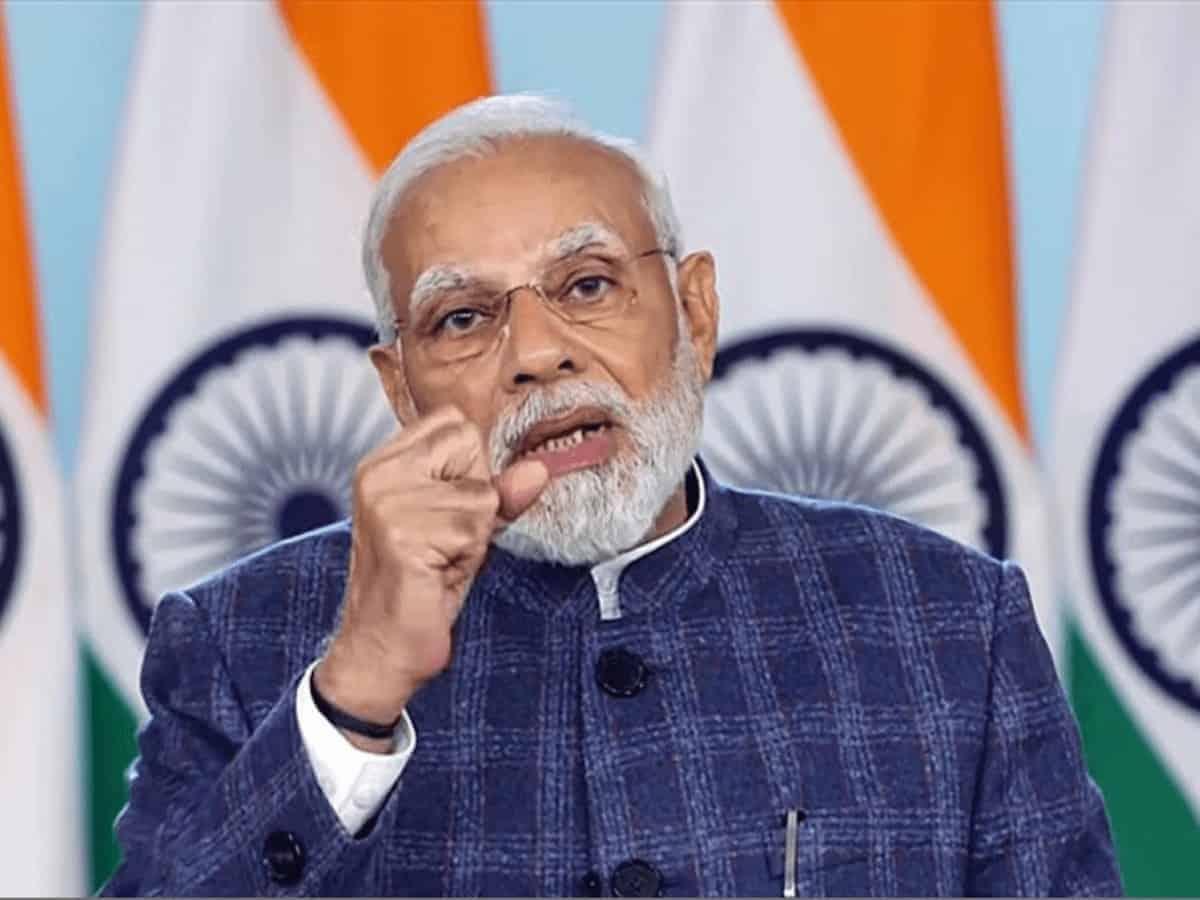
India has redefined terrorism and also its role in the fight against this menace which poses a major threat to regional and global peace. There is a definitive shift in its approach in dealing with terrorism – it is not just asking the government to study and understand dangers inherent in the spread of terrorism, need to curb it but also determining the role of leader in the fight against terrorism.
There were two back-to-back developments – Prime Minister Narendra Modi’s joint Statement with US President Joe Biden in Washington on June 22, and his speech at the Shanghai Cooperation Organization ( SCO) virtual summit in New Delhi on July 4 – a gap of less than a fortnight – which showed that India has been able to put terrorism on global agenda as one of the top most priority, perhaps equivalent to the threat that climate change poses to the world.
The Indo-US joint statement highlighted how terrorism, especially cross-border terrorism, was threatening the world order. Had become a major danger to the world order. It read that the two leaders of the two largest democracies in the world “strongly condemned cross-border terrorism, the use of terrorist proxies and called on Pakistan to take immediate action to ensure that no territory under its control is used for launching terrorist attacks. They called for the perpetrators of the 26/11 Mumbai and Pathankot attacks to be brought to justice.”
It might have appeared that the joint statement was targeting Pakistan, which is now seen as an epicenter of terrorism in South Asia, and also responsible for giving birth, training, and patronizing the terrorist outfits that struck various countries across the world, including America, the UK, and Spain, the underlined part was that how one black sheep can spoil the whole show.
India has strong reasons to place Pakistan as the center of all terrorism-related problems in the world, it itself has been the worst victim of Pakistan’s use of terrorist groups, in particular, Jammu and Kashmir, reeling from terrorist violence for the past over three decades, beginning with 1990. The damage that Pakistan caused to the erstwhile state, now union territory, has often been measured in terms of death census – 42,000 killed, many more rendered helpless for the rest of the lives, and nearly half-a-million population, mostly minorities displaced in the most harrowing circumstances. But there is a larger damage that cannot be measured through yardsticks. India is paying a heavy price for the destruction of the lives of three generations. This has created a mental disorder among many of the youth in Kashmir Valley. The psyche of three generations born from the 1980s to the early 200s has been damaged. Their dilemma can neither be understood nor undone by any number of measures as they grew in an atmosphere where the violence of guns and bombs, and stones had become the norm in their lives. It is very, very, difficult to shed dark shadows of the past.
India was making the world aware that how terrorism eats away the vitals of life and makes it difficult for the generations to come out of the traumatic impact of acts of terrorism committed by terrorists at home or abroad. Here, it is important to note this particular sentence in the joint statement, in which Biden and Modi reiterated their call for “ concerted action against the UN -listed terrorist groups including Al-Qaeda, ISIS/Daesh, Lashkar-e-Tayyiba (LeT), Jaish-e-Mohammad ( JeM) and Hizb-ul-Mujahadeen .” It shows how the global terror networks were aligned with the groups which have targeted India time and again. It was an acknowledgment by the US and by extension its allies that terrorism, operating under any name, is terrorism – it kills and destroys lives and disrupts normalcy across nations.
Close on the heels of the issuance of the joint statement, Prime Minister Modi’s speech at the SCO summit did not mince words in condemning terrorism. In a thinly veiled reference to Pakistan, he reiterated: “Terrorism has become a major threat to regional and global peace. Dealing with this challenge requires decisive action regardless of its form or manifestation, we must unite in our fight against terrorism .” At the same time, he reverted to the theme of cross-border terrorism and stated, with an unhidden reference to Pakistan, that “ some countries use cross-border terrorism as an instrument of their policies, provide shelter to terrorists, SCO should not hesitate to criticize such nations. There should be no place for double standards on such serious matters .”
This was yet again an effort to invoke the dangers of terrorism, and involve other influential countries, in decisive action against terrorism. Today, the world listens to India with greater attention than ever. Some countries may be having differences with India on various issues, which is natural in international relations, but there can be no difference in how to view and deal with the threat of terrorism.
It may seem that India is speaking as a victim of terrorism, particularly cross-border terrorism, the significant thing is that India, owing to its own experience, is counseling and telling the world that the way to fight terrorism is not to watch and retaliate but to become partners in a comprehensive world-wide strategy to preempt the threat.

